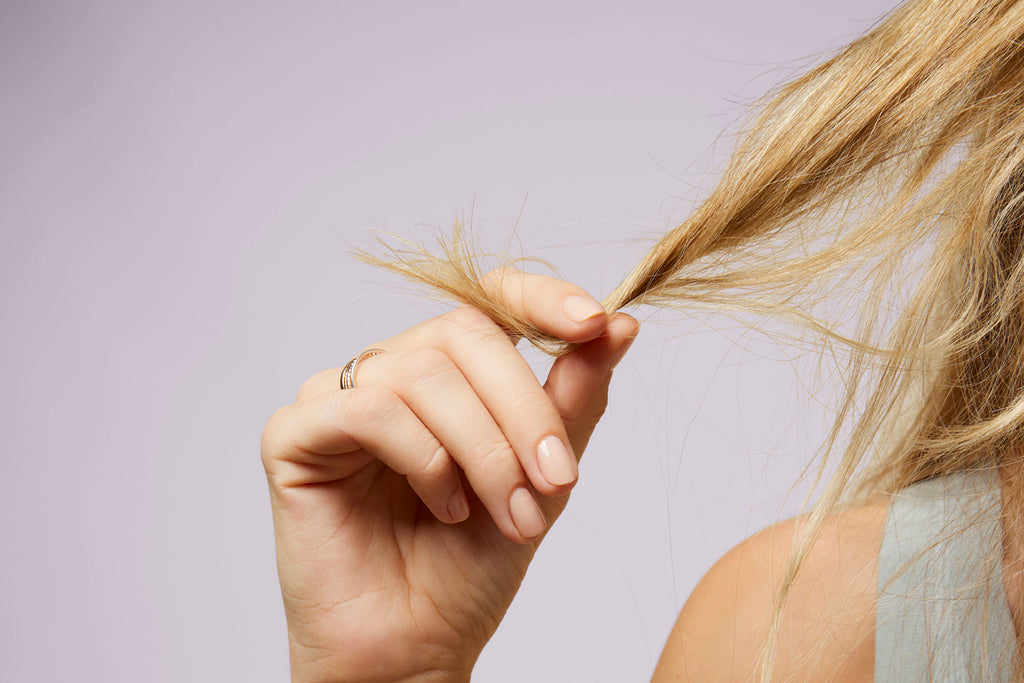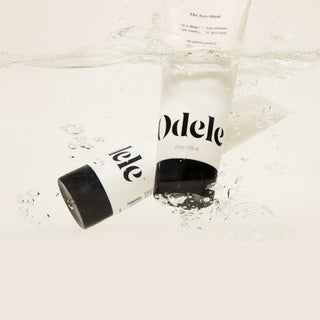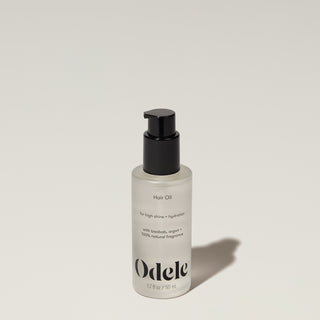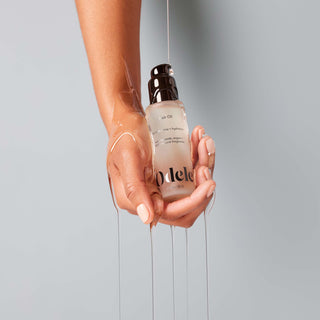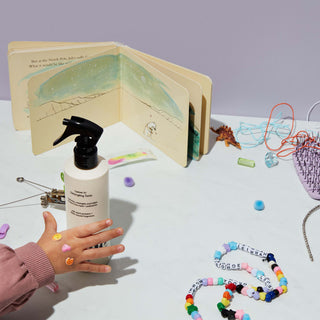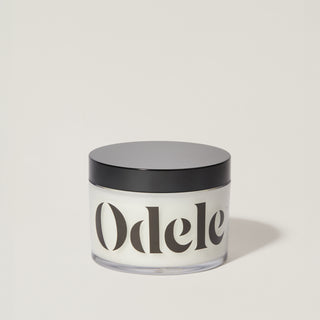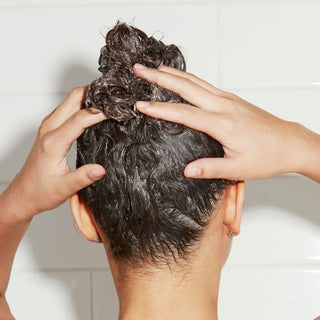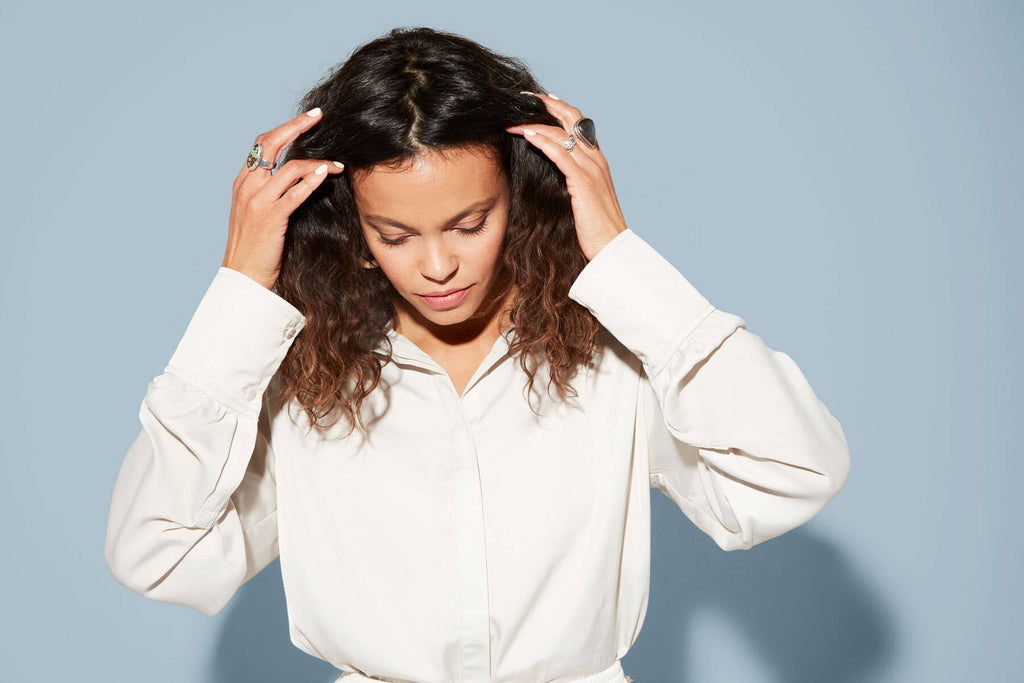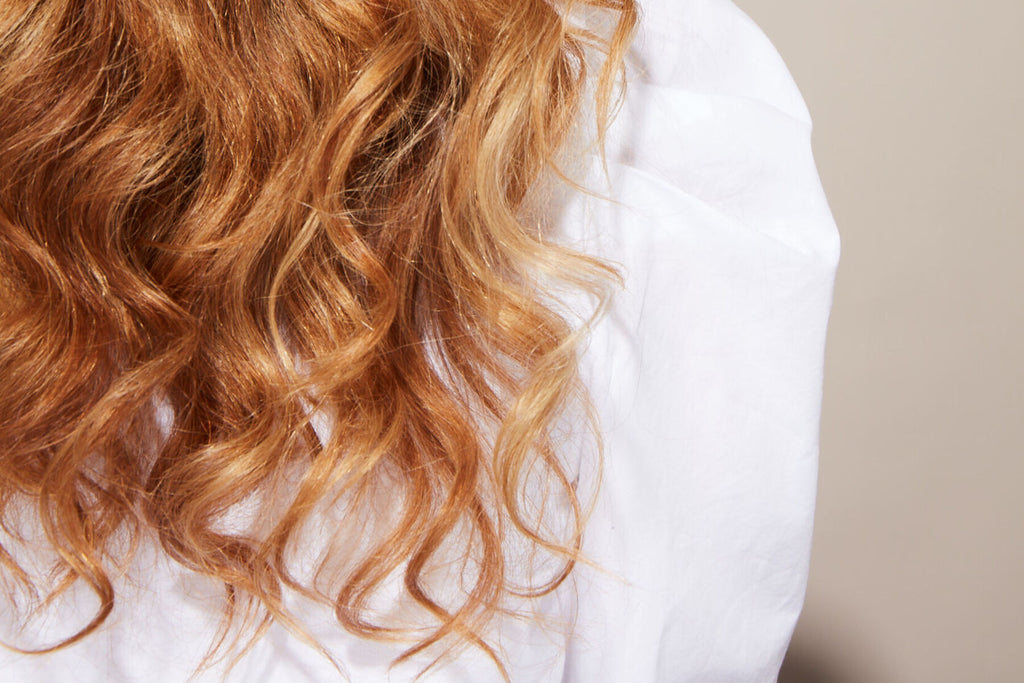Is your hair stuck at shoulder length? Does it never seem to grow past a certain point, no matter how many growth oils and serums you slather on? There could be a few reasons why.
To be clear, long hair doesn't always equal healthy hair. But if you've got growth goals, read on to learn why your locks may be stopping short of your desired length—and what you can do to encourage healthy growth.
Why won't my hair grow past a certain point?
Genetics
Sometimes, it's just genes. Your genes determine your hair growth cycle, which is the period of time each strand of hair on your head spends growing. When a hair reaches the end of its growth cycle, it stops growing and sheds off.
Hair growth cycles range from about two to six years. If you have a shorter hair growth cycle, that means each hair on your head grows for a shorter period of time, which is why your locks may not get past a certain length.
And that's okay! It can be sort of freeing to accept that genes will be genes and embrace your length, wherever you're at. (And hey, extensions are always an option if you want to switch up your look from time to time.)
Genetics play a big part, but there are a few other factors that can impact growth and length.
Scalp buildup
A healthy scalp means a better environment for hair growth. When your scalp is clean and balanced, your follicles can better absorb all the important nutrients in your hair products. If your scalp isn't getting a proper clean, it can slow hair growth and increase shedding.
To keep your scalp buildup-free, focus your cleansing efforts there when you shampoo. You want to massage shampoo directly into your scalp and roots since they tend to collect the most dirt, oil, dead skin and product residue. Consider adding a scalp exfoliator, like our cleansing Scalp + Body Scrub, for a more thorough cleanse, especially if you have an oily scalp or use a lot of styling products.
Some research suggests that massaging your scalp may also help promote hair growth (regardless, it feels really good!). An easy way to work this into your routine? Massage for an extra couple of minutes as you work in your shampoo or scrub.
Breakage
Breakage is a big thing that can limit length. Growth rate depends on your unique hair growth cycle, but the average person's hair grows half an inch every month. That's about six inches of growth a year. However, if your hair is breaking off at the same rate that it's growing, you aren't going to see new length.
Breakage happens because of:
- Split ends: We all deal with these, and it's no big deal to have a few. But letting them linger for too long can lead to more breakage. Trim your hair every six to eight weeks to remove split ends. You can help prevent them by keeping your ends moisturized and being gentle with your hair.
- Over-processing: Be mindful of how often you chemically process your hair, which can weaken the structure of your strands. Space out relaxers and color treatments to avoid breakage, and make sure you use the right maintenance products to protect and strengthen your hair post-treatment. Processed hair needs lots of moisture!
- Too much heat: Always apply a heat protectant before using hot tools. We also recommend deep conditioning to protect and strengthen your hair before styling it with heat.
- Aggressive styling: Make sure you're using the right brushes and combs for your hair type. When in doubt, a wide-tooth comb is a gentle option for detangling any texture. Avoid ultra-tight braids or buns, especially when your hair is still wet or damp. Opt for scrunchies or claw clips over abrasive hair ties.
-
Harsh products: Anything that dries out your hair can leave it vulnerable to breakage. Sulfate-free shampoos use gentle cleansers that wash without stripping your hair of good, protective oils. If you use gels or mousses, look for ones that are free of drying alcohols (isopropyl, alcohol denat.), like our Flex Hair Gel.
Hormonal changes (like stress, puberty, pregnancy and menopause)
Hormones—specifically estrogen, progesterone and testosterone—control a lot of things in your body, including your hair growth cycle. When one or more of these hormones gets thrown out of whack (be it from puberty, pregnancy, menopause or other bodily changes), it can mess with hair growth, causing the hair follicles to slow down or stop making hair.
Stress amps up production of the hormone cortisol, which can push hair prematurely into what's called the "resting phase" of its growth cycle and make it shed faster than usual. The good news is it's not permanent—taking care of yourself mentally and physically can get your body back in balance.
Age
Age might affect how much your hair grows because your cycle shortens the older you get. Your scalp also produces less oil as you age, meaning drier hair that's more prone to breakage.
The blessing that is aging may require you to reevaluate your hair type and routine to see if your hair is actually getting what it needs now vs. what may have worked well for you in the past.
Diet
Hair is mostly made up of protein (keratin, specifically), so it's no surprise that diet plays a role in hair health. A vitamin-rich diet nourishes your follicles, meaning stronger, longer hair.
Studies have shown eating foods high in protein (lean meats, yogurt), omega-3 fatty acids (salmon, tuna), iron (eggs, spinach, chicken) and B-complex vitamins (avocados, whole grains, legumes, bell peppers) may support hair growth and overall hair health.

